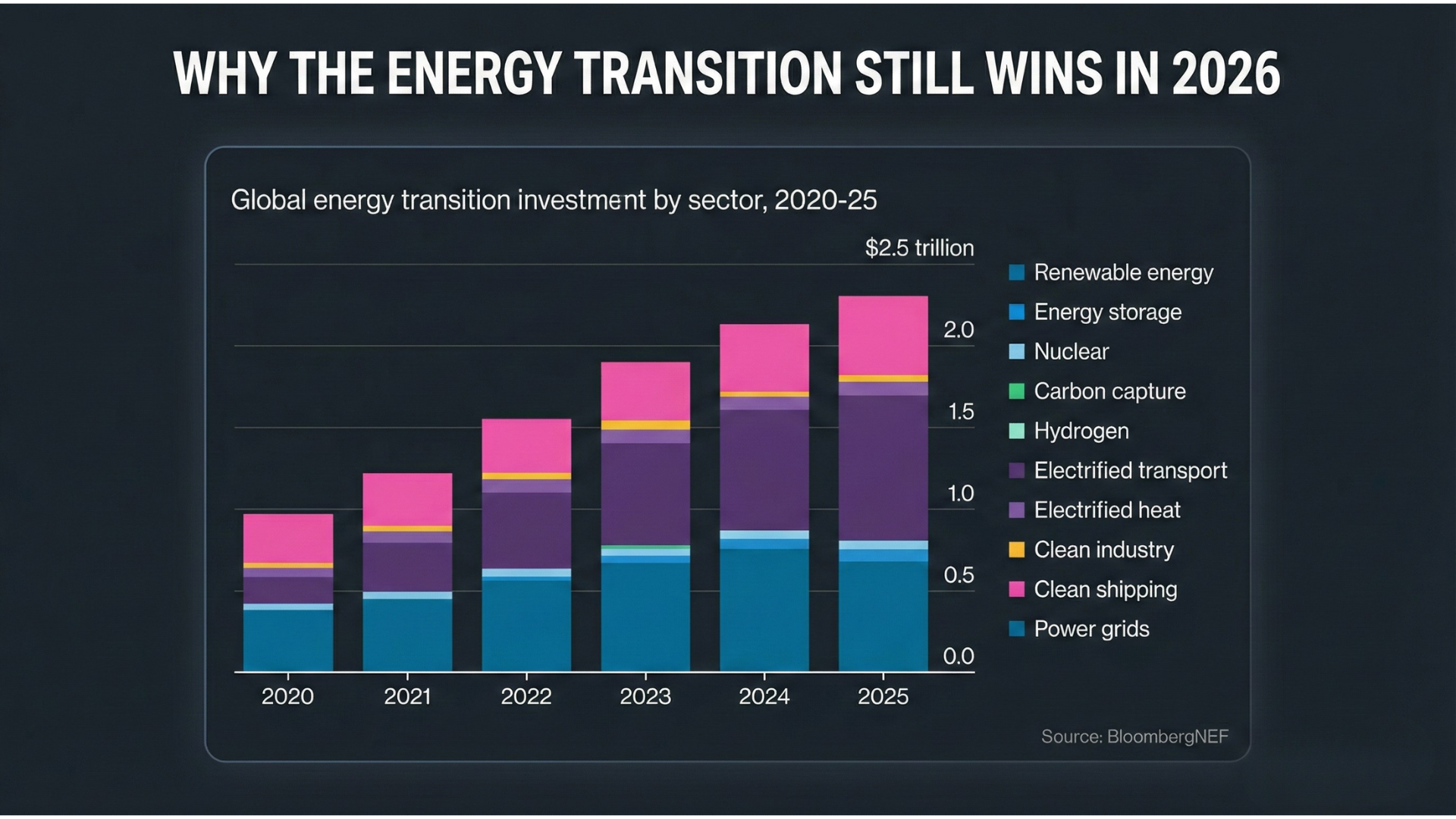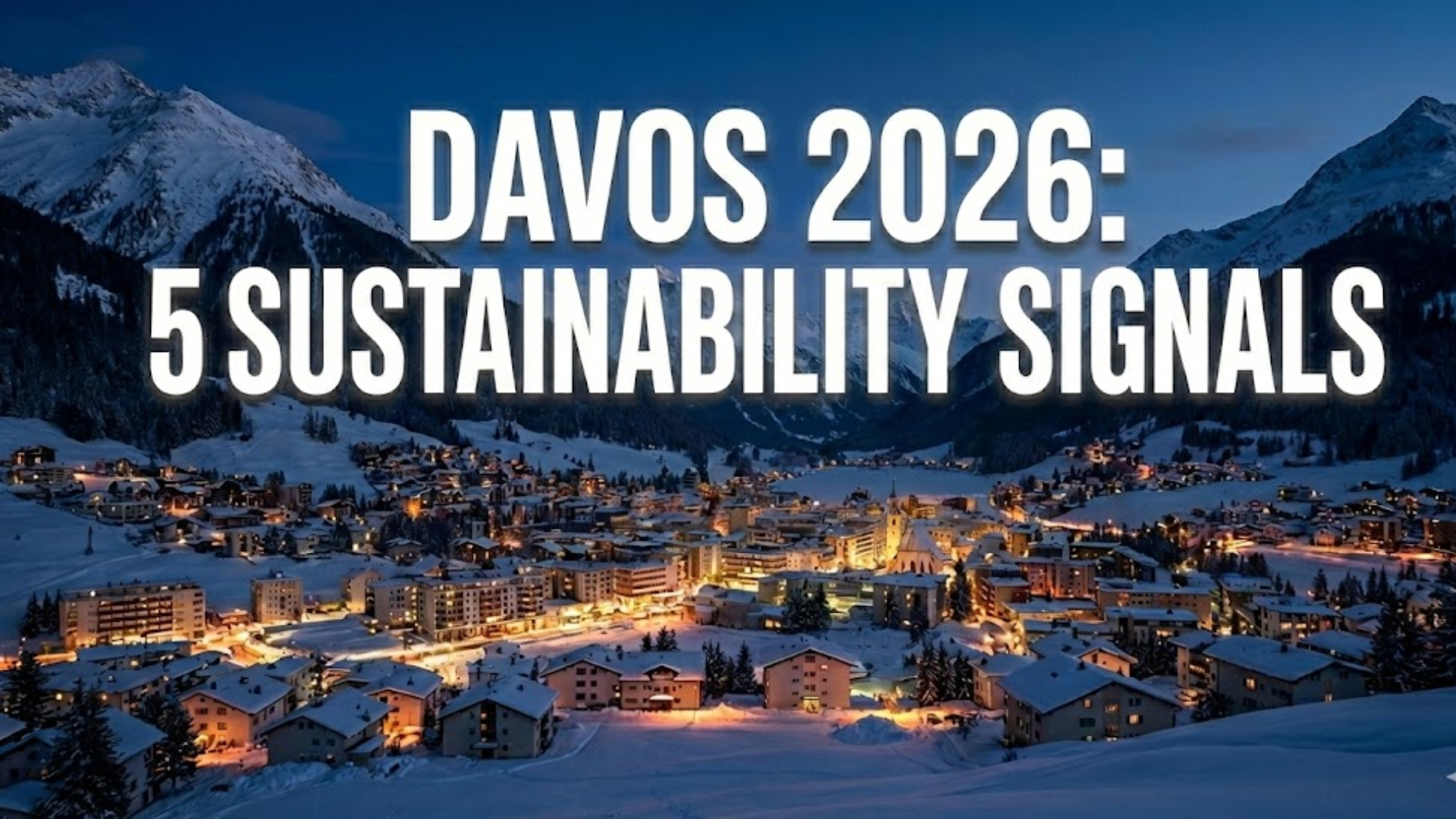

More companies than ever are reporting on sustainability and setting climate targets
EPA’s potential reversal on killing the Energy STAR program
The EU looks to weaken its Green Deal further
UN’s Emissions Gap Report shows progress
Elections in the US show strength for climate action
Last week’s newsletter epitomized the backtracking we have seen on climate and sustainability in 2025. But every few weeks, it’s good to take a step back and look at what’s actually happening in corporate sustainability. The signal in the noise is very different from the rollbacks and retreats that get all the headlines.
Two new reports released this week provided a good barometer of the overall sustainability movement:
OECD’s Global Corporate Sustainability Report for 2025 revealed that more publicly traded companies are reporting on sustainability than ever, with 91% of global market cap disclosing sustainability information, up from 86% two years ago. While there are discrepancies between countries, the EU (98%), developed Asia Pacific countries (94%), and the US (93%) lead the pack. Assurance is also becoming more mainstream, with 81% of large public companies by market cap (more than 5,000 companies) undergoing third-party audits to verify the accuracy of their sustainability reports.
This week, the SBTi released a new report on the business case for why so many companies have been setting SBTi-aligned targets. The headline is that the number of companies setting science-based climate targets through the Science Based Targets Initiative (SBTi) has tripled in the last 18 months, now closing in on 12,000. The report, based on 171 companies with more than 2-year-old validated targets, found that:
80% said it strengthened investor perception and relations
92% reported an overall neutral or positive impact on the company's long-term financial performance
91% of companies experienced an overall positive impact in setting science-based goals
95% reported a positive reputational impact
SBTi’s CEO, David Kennedy, said, “While public discourse questions climate commitment, many thousands of companies around the world continue to transform their operations and supply chains towards net-zero,” adding that “Companies now have a clear business case for setting science-based climate targets.”
Despite the pessimistic discourse around climate action, this year is being called the “glory days” for green investors. So far this year, green stocks have far outperformed global indices like the S&P 500. The driving force behind what Aniket Shah at investment banking firm Jefferies called a “wonderful moment” for the green economy is clean energy to power AI data centers, and China’s glut of cheap green tech exports.
Mark Twain famously said: “The rumors of my demise have been greatly exaggerated.” The same can be said for climate and sustainability. Having worked in the space for decades, it is always tough to deal with the glee some folks take in the downturns. But, while the curve may be bumpy, the trend is clear.
👉 Prefer to get Sustainability Simplified straight into your inbox instead of LinkedIn? Sign up to our email list here.
2. EPA U-turn on Energy STAR Program?

In a surprise reversal, the US Environmental Protection Agency (EPA) may be reconsidering the elimination of the widely popular Energy STAR program. Energy STAR is a government energy-efficiency appliance labeling program that has helped consumers and businesses save $500 billion since it started over 30 years ago.
After the EPA announced it would end the program back in May, the move received rare bipartisan pushback for an environmental program, with Maine Republican Senator Susan Collins, saying, “I know that my constituents like knowing what the energy usage is of a particular appliance so that they can factor that into their buying decisions,” shortly after the announcement.
While Brigit Hirsch, a spokeswoman for the EPA, said in an email that “no final decision has been made at this time” on whether to keep Energy Star. EPA Administrator Lee Zeldin is under pressure from the Trump Administration to kill “wasteful green spending.” But this voluntary measure, which costs just $32 million and saves Americans up to $40 billion a year in utility bills, doesn’t really fit into that narrative.
3. EU Green Deal Cuts to Continue

Back to regular programming with some more Green Deal backtracking in the EU, where the majority centre-right European People's Party (EPP) is poised to side with far-right parties. At next week’s plenary vote (November 12th), the EPP plans to work with far-right groups to get an approved position out of Parliament on their Omnibus "simplification" package. This means more cuts to the Corporate Sustainability Reporting Directive (CSRD) and Corporate Sustainability Due Diligence Directive (CSDDD) are likely.
After an EEP meeting on Tuesday, their lead negotiator for the Omnibus, Jörgen Warborn, said, "The EPP will now move forward and table only EPP amendments, and I expect that we can secure a majority." The group's president, Manfred Weber, admitted the group was aiming to find a right-wing majority with these new amendments. Reading between the lines, this will likely mean the November 12th vote will result in a weakened CSRD and CSDDD that impact fewer companies.
This backtracking comes amid growing US pressure. This week, a group of 16 U.S. State Attorneys General wrote a letter to some of America’s largest companies, urging them not to comply with the EU’s CSRD and CSDDD, and threatening that compliance with EU laws would expose the companies “to lawsuits and government enforcement actions in the U.S.”
Also, this week, the EU agreed to a weakened 2040 climate plan after last-minute pressure from some member states. While the 90% bloc-wide emissions reduction goal remains, low ambition states managed to include a 5% buffer, which international offsets could fill, and the goal will now be reviewed every 2 years to ensure it is not causing economic damage. As part of the compromise, the next iteration of the EU’s Emissions Trading Scheme (ETS2) will be delayed by a year, to 2028. The deal now has to be approved by the EU parliament.
4. UN Sees Incremental Progress on Climate

With COP30 fast approaching, a steady stream of UN reports is being released to shape discussions at this year’s pivotal event. The most recent release this week was the Emissions Gap Report, which measures the gap between countries’ goals and actual emissions reductions.
This year’s findings showed a slight narrowing of the gap compared to previous years, but we are still far off the Paris Agreement's goal. Under current policies, warming will reach at least 2.8°C (global average temperature rise), down from last year's 3.1°C estimate. The report also took into account US President Trump’s anti-climate agenda, which the report claims will increase global temperatures by 0.1°C. In response, the US State Department said in a statement, “The United States does not support the Emissions Gap Report.”
5. Votes for Climate Action

Tuesday was the first US election day since the Trump administration took over. While this was an off-year, with only a few meaningful races, it revealed support for climate action in response to Trump’s anti-climate agenda ahead of next year's midterms.
In New Jersey, Democratic Governor-elect Mikie Sherrill ran on a promise to implement more clean energy to lower energy costs. In Virginia, new Democratic Governor-elect Abigail Spanberger won partly on her support for implementing renewable and energy-efficiency schemes for the state's growing data centers. And in one of the most consequential elections, New York’s new Mayor-elect Zorhan Mamdani ran on climate policies such as enforcing the city's Local Law 97, which requires large buildings to meet emissions limits; retrofitting 500 schools with solar panels; and making public buses free and fast.
The views expressed on this website/weblog are mine alone and do not necessarily reflect the views of my employer.
Other Notable News:
COP30
1.5°C
Climate Risks
Sustainability Reporting
Nature Reporting
SBTi
Notable Podcasts:
This week’s episode of the Outrage and Optimism podcast features a look ahead to what's at stake at COP30. The team discusses the potential for meeting global climate adaptation funding and whether the recently released nationally determined contributions tell the whole story or miss the real momentum behind renewable energy.







